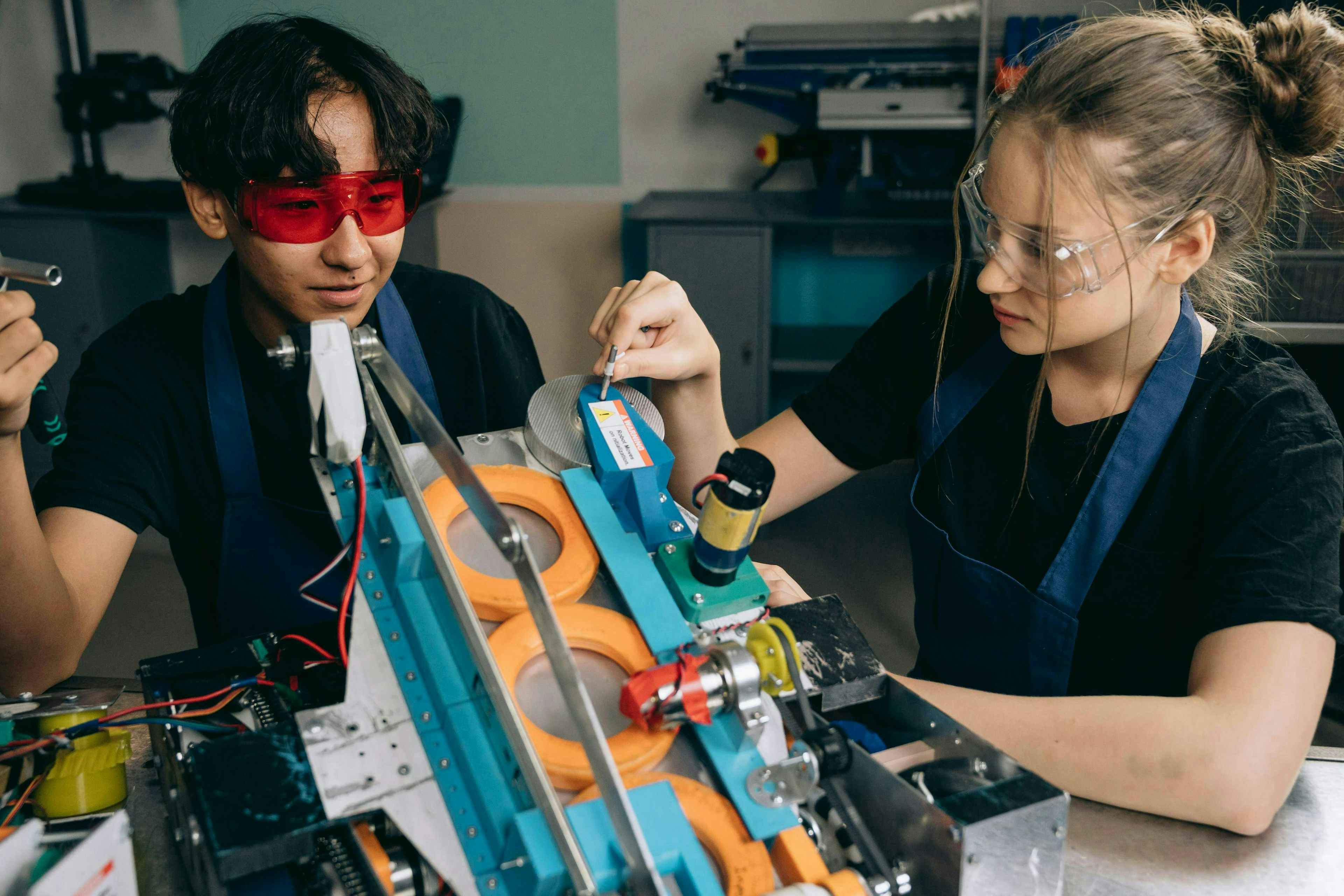Starting Your STEM Future in High School

A recent study shared by Smart Assets reveals that careers resulting from STEM-related degrees (science, technology, engineering, and math) are predicted to grow by more than 800,000 between now and 2031. And more than half will lead to computer and mathematical occupations. This means everything from actuaries, AI engineers, computer scientists, biomedical technicians to physicists, civil engineers, and epidemiologists. That’s just a small fraction of the whole STEM landscape.
The same study found that careers in information security are the fastest-growing and show the strongest growth potential for the future. Indeed, cybersecurity is hotter than hot: Cybersecurity Jobs Report predicts 3.5 million job openings by 2025.
Here’s what aspiring STEM students need to know: when computer and math; engineering; life, physical, and social science occupations are combined, they account for more than 6% of total U.S. employment—that’s 8.6 million STEM jobs and growing.
How do high school school students get a jump on a future in STEM?
High school is the perfect time to engage in the basic skills you'll need to succeed in STEM. These include:
- Problem solving
- Critical thinking
- Creativity
- Curiosity
- Logical mathematical skills
- Engineering design skills
- Basic scientific knowledge
Today’s young people are digital natives, but in many ways, their dexterity with social media, gaming, and texting is a false signal. It’s the people who design the digital architecture for social media platforms, the minds behind gaming technology, and the AI innovators that colleges and the job markets are looking for.
Start with STEM camps for teens, math and science summer camps or online pre-college courses.
Higher education is way ahead when it comes to engaging motivated high school students in STEM. Rochester University, a Prelum partner, is one example. The Rochester Pre-College Online Program relies heavily on its STEM-focused university strengths, and offers five online courses for high school students, all currently within the field of STEM. Students 13 and older can sign up for two or four-week sessions. Courses include: biomedical engineering, medicine, orthopedic medicine, video game design, and U.S. healthcare.
Courses are online and feature dynamic videos and interactive tools. You’ll hear from renowned professors and complete a final project to earn a certificate that they can add to their resumes. In addition to online courses, Rochester offers summer sessions, both online and in-person.
Other universities with STEM programs for high school students include Wake Forest University. Their Online Immersion Programs for high school students feature an impressive assortment of science and pre-med programs online, such as: bioscience, medicine, cancer medicine, sports and women’s medicine. And Case Western University’s Pre-College Program is distinguished by courses in astrophysics and evolutionary biology, engineering, neuroscience, and medicine. Another leader in the field is Georgetown University, with several pre-med courses for high school students courses in medicine, as well as online STEM programs, among other options.
What is the future of STEM education?
The future of STEM looks incredibly bright. From a financial perspective, the national average wage for all STEM occupations is $101,650 — double the national average for non-STEM occupations; plus 93 out of 100 STEM occupations reviewed earn wages above the national average. Plus, many high schools across the country provide Career and Technical Education (CTE) programs, with a focus on making STEM accessible to a broader, more diverse audience.
Robotics is getting a lot of traction right now, as we see manufacturing the world over moving more and more toward reliance on automation. Summer STEM camps and online courses for kids today use play-based learning techniques that open the door to more students and help them embrace concepts of engineering and robotics in a fun way.
What classes should aspiring STEM students take?
If a college degree in STEM is on your wishlist, you’ll need to pursue the kind of courses that advisors recommend. In areas of science and pre-med, this can include subjects such as:
- Calculus
- Computer Science
- Statistics
- Chemistry
- Biology
- Physics
In the area of math and engineering, you’ll want to consider a pre-college program that offers subjects such as:
- Applied Mathematics
- Biomedical Engineering
- Computational Biology
- Electrical Engineering
- Engineering
- Mathematics
- Mathematics - Computer Science
If the above seems daunting, keep in mind that pre-college summer camps and online courses from top universities are plentiful and designed by some of the nation’s top universities. In other words, start early and take as much as you can.
Recommended Articles


College Prep
9 Time Management Tips to Master Your Hectic Schedule and Prepare for College
Read Article